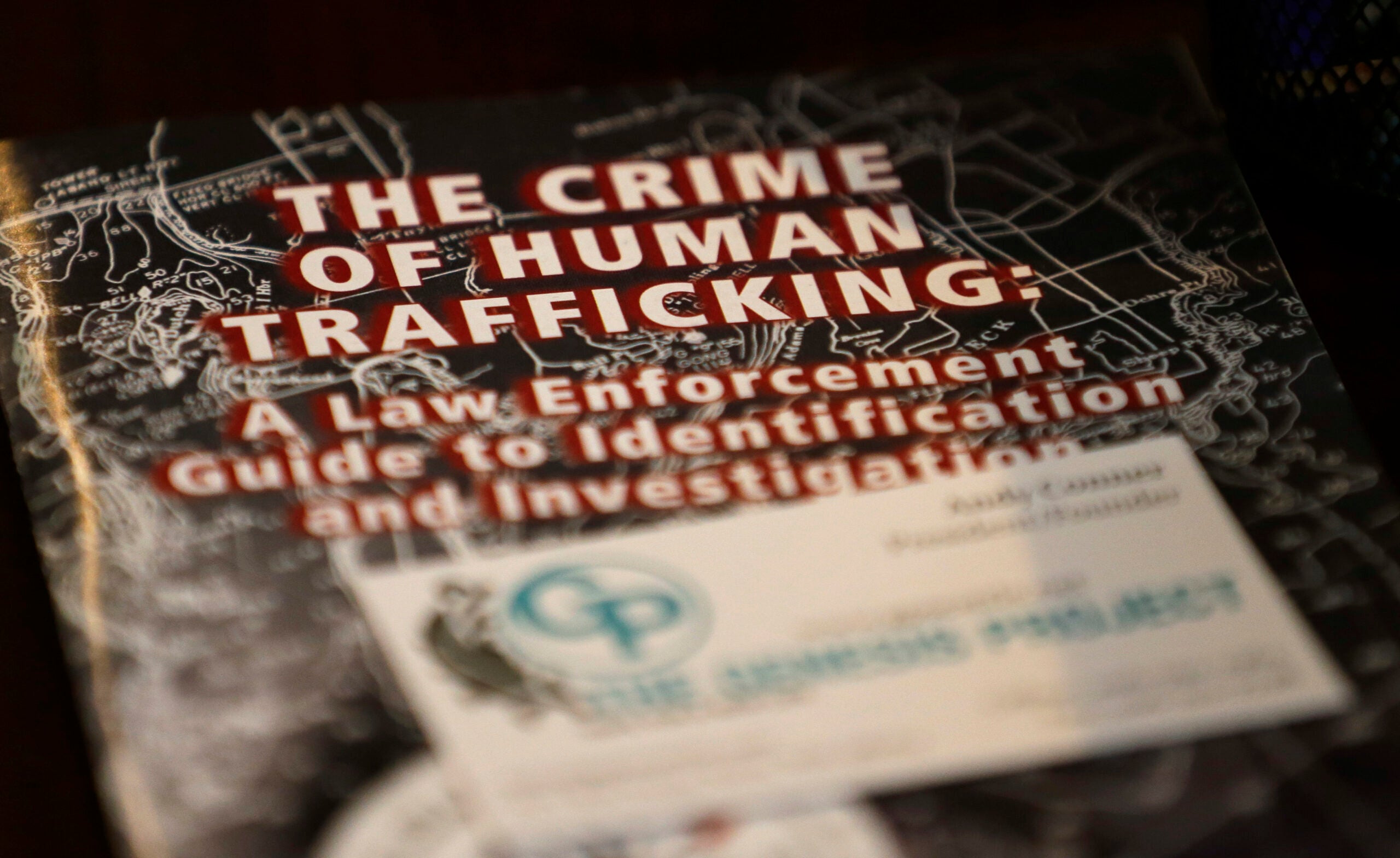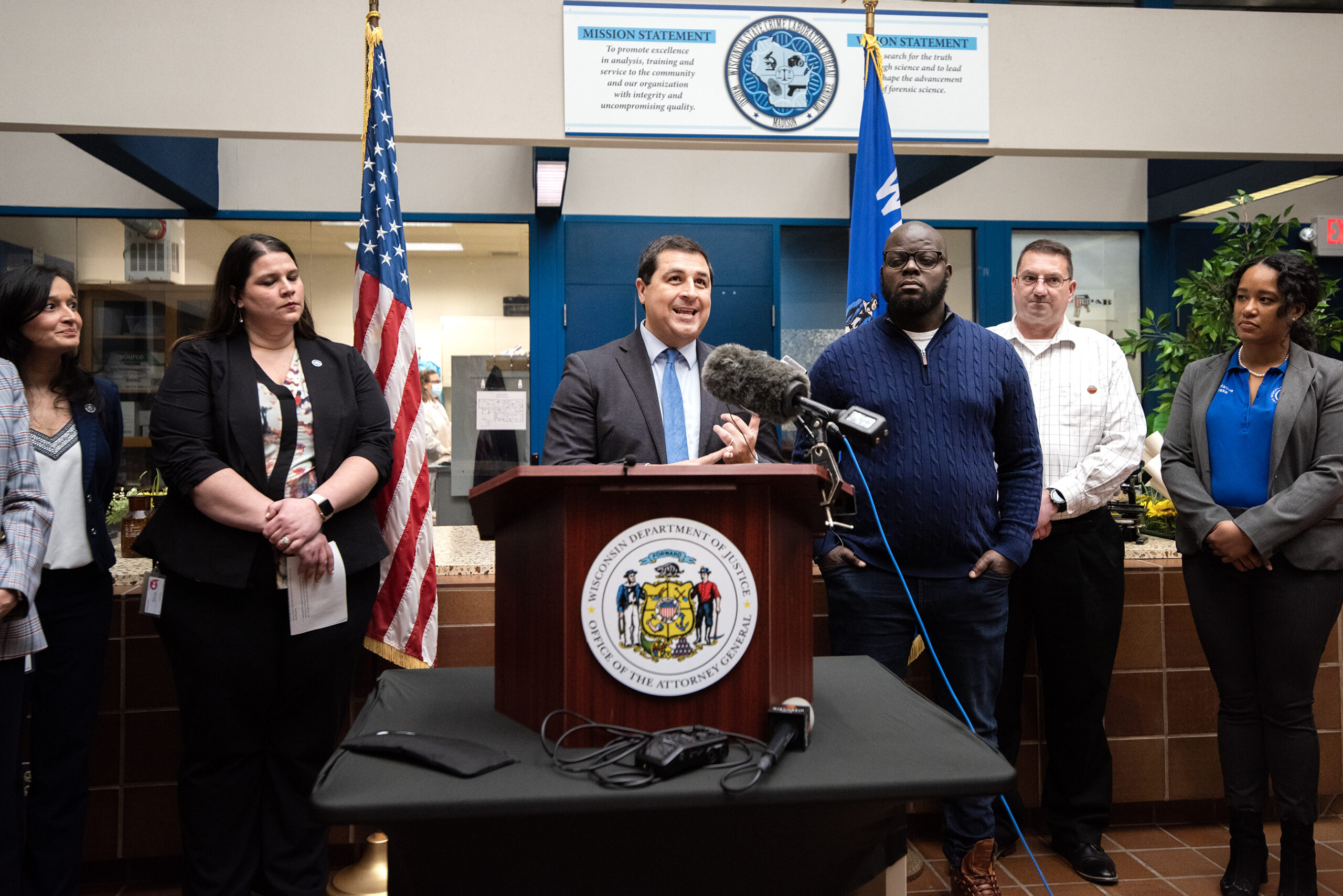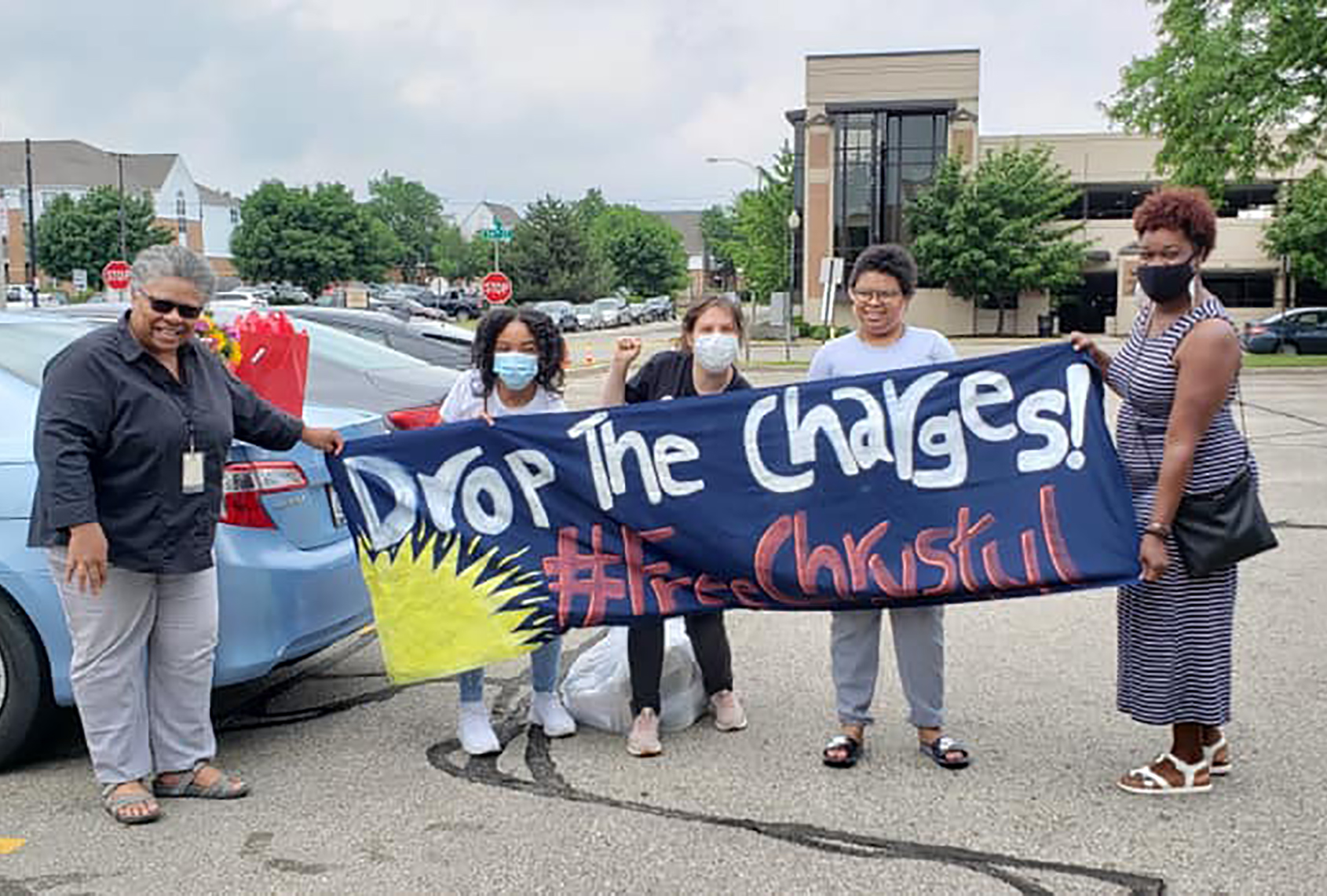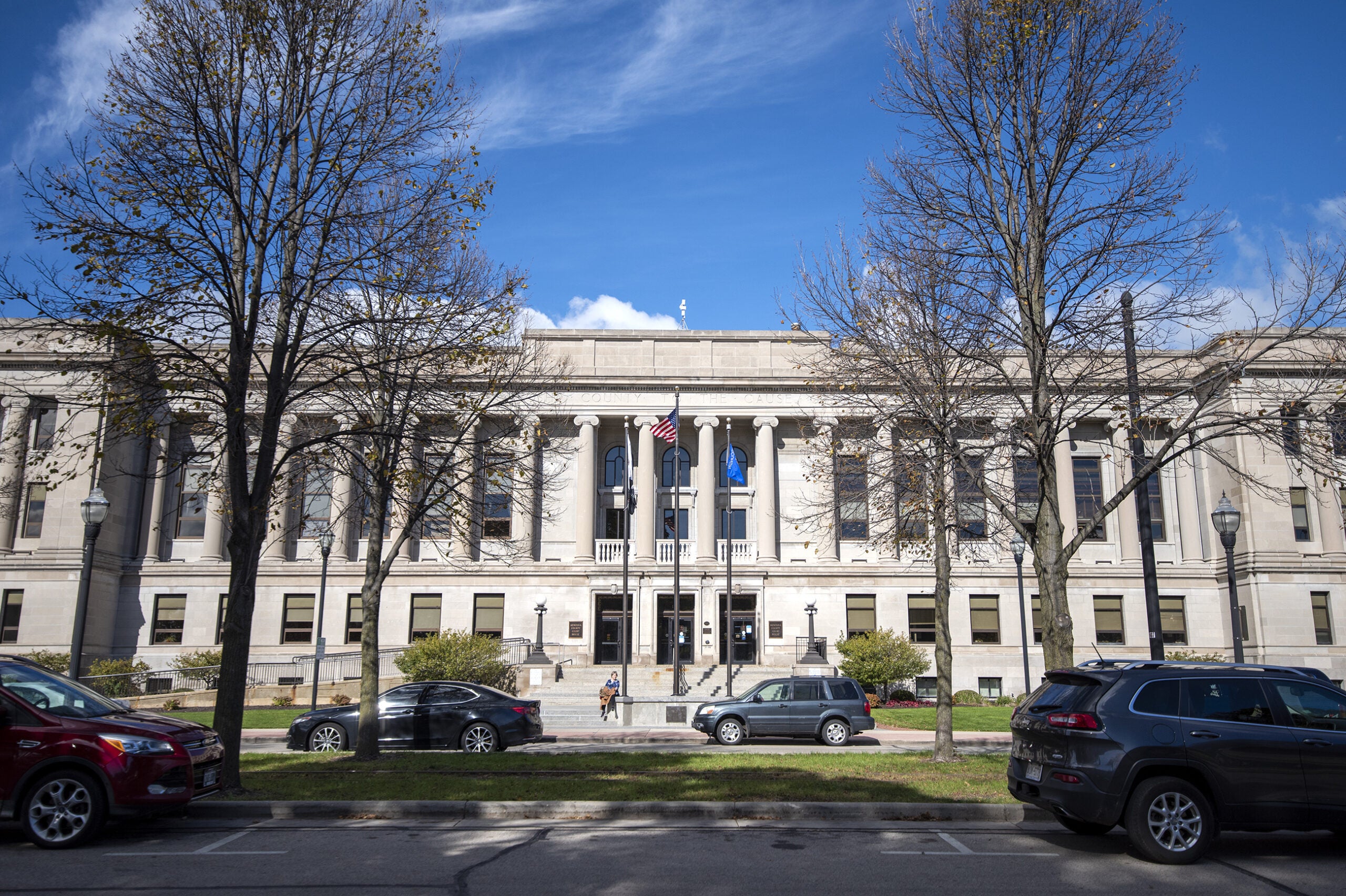Editor’s note: This story contains language and descriptions surrounding sexual assault.
Gov. Tony Evers signed a package of bills into law this year designed to combat human trafficking in Wisconsin.
The bipartisan measures create a Human Trafficking Council within the state Department of Justice, allocate more funding for grants that support victims and require certain employers to train their workers on identifying and preventing human trafficking.
Stay informed on the latest news
Sign up for WPR’s email newsletter.
The new laws follow Shared Hope International, a national nonprofit anti-trafficking organization that gave Wisconsin an “F” grade in 2023 while evaluating state statutes for child sex trafficking.
Local advocates and victim services providers like Jan Miyasaki of Project Respect in Madison see the new laws as meaningful progress, but say more work needs to be done.
Miyasaki recently talked to WPR’s “Central Time” about the measures and her work with survivors of human trafficking in Wisconsin.
The following was edited for brevity and clarity.
Rob Ferrett: I know it might be hard to put numbers on it, but human trafficking does happen here, right?
Jan Miyasaki: Yes. It happens anywhere, rural or urban, because the demand to purchase sex, for instance, crosses all lines and is ultimately what propagates this kind of exploitation.
RF: Is part of the problem that we need a better understanding of the scope of the problem?
JM: I think that’s a good first step. One of the pieces of legislation that passed was the establishing of a Human Trafficking Council. One of the council’s tasks is to do data collection. I think that is important because we need to have a better sense of how this is occurring in our state. It’s a good effort to start with.
It’s bringing together the Wisconsin Department of Justice, the Wisconsin Department of Public Instruction and the Department of Children and Families. Ideally, if you’re working on prevention, we would want to also include the public health department. But it’s really an important new council. Its job will be to not only collect data but to analyze it, because we need people who can crunch the data.
RF: One of the new laws mandates human trafficking training for employees at a bunch of different places: residential facilities, hotels, motels, adult entertainment establishments, public transit workers. Can you talk about what kind of training might be useful in helping people spot human trafficking?
JM: What I thought was really valuable inside of that legislation was particularly training those who work in community-based residential facilities. When we think of those kinds of places, we often think of senior living facilities. But it also includes facilities for folks with intellectual and developmental disabilities. And folks with intellectual and developmental disabilities are more likely to become victims of sexual assault. They’re more vulnerable to human trafficking.
RF: What other parts of these laws stood out to you as being particularly important?
JM: It calls for someone within any local law enforcement to have the job of coordination, prevention, training and enforcement, and that somebody would be the point person. We’re fortunate in Dane County to have someone like that, but the Human Trafficking Council legislation calls for that. I think that’s really great to have somebody designated to do all the training and prevention work, or at least to coordinate it.
RF: A victim of trafficking might be concerned about being charged with a crime themselves, if they report being part of prostitution. Is this something you see changing in law enforcement and prosecution over time?
JM: From the victim service provider standpoint, we are really mindful of a victim’s rights and how important it is to ensure their privacy. We take a victim-centered approach. Adult victims can tell us whether or not they want law enforcement involved.
The law enforcement that we partner with most frequently are trained and are not looking to make those kinds of arrests, but are trying to get to the larger crime of trafficking.
RF: Are there systemic things you’d like to see done to make sure that people are less vulnerable to trafficking?
JM: Where do I start? I think the concern that you raised about the victim being charged with prostitution. If they’re not identified as a victim but a perpetrator of a crime, then they get that charge, and that charge can really impact their ability to get jobs, to get housing.
A good systemic change would be to expand the current expungement provisions in the Wisconsin statutes to include any offense where a victim was induced or compelled to commit while they were trafficked, because right now, there are just a few named offenses — but that is one that could be a real game changer in the person’s life.
RF: I wanted to ask about your work with survivors in particular. What kind of things do you do at Project Respect to help them?
JM: The survivor identifies what is driving this (need for services). Often, it might be issues around economic insecurity and housing insecurity. It could be some kind of health issue. It can depend.
We do offer mental health therapy, peer support groups, intensive case management — really breaking down the barriers that exist within our systems to victims accessing needed services. We do accompaniment to interviews, whether it’s with law enforcement or forensic nurse examiners, just to name a few.
RF: Shared Hope International gave Wisconsin and a lot of other states “F” grades on report cards for sex trafficking response, prevention and training. Do you see a lack of effort and a lack of programs to deal with trafficking in Wisconsin?
JM: I would expect after these pieces of legislation that scores should improve, because what Shared Hope International is looking at, are the rules and the laws and what we have in place. I think that if we enact safe harbor legislation and take juvenile prostitution off the books, we would jump up even more significantly.
RF: One aspect of the new laws is grants to help victims of sex trafficking. What kind of resources would you like to see?
JM: I think it would get to that need to provide some seed money on the ground for people to do a pilot program in their community, maybe inside of an existing sexual assault center or inside of a child advocacy center, because that might not be enough to fully establish something independent.
RF: Are we doing enough to pursue the perpetrators of sex trafficking?
JM: It is the demand for purchased sex or the demand for cheap labor that drives and propagates this. However, I think if we address what creates the vulnerabilities, we could starve that demand.
There are those that are really looking at demand responses and that can be really effective. I know that law enforcement and others continuously look at that.
But from a victim service provider end of it, I want to work on this even further upstream and deal with the conditions that make people vulnerable.
Wisconsin Public Radio, © Copyright 2025, Board of Regents of the University of Wisconsin System and Wisconsin Educational Communications Board.



